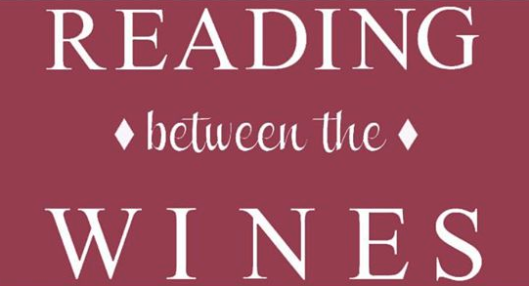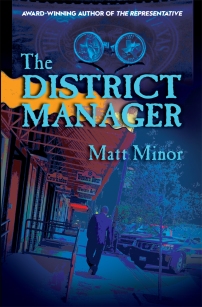Tags
classic film, england, film, hepburn, King Henry, movie, o'toole, play, review
03 Thursday Jan 2019
Posted in Movie review, Uncategorized
Tags
classic film, england, film, hepburn, King Henry, movie, o'toole, play, review
24 Thursday May 2018
Posted in Book Review, Uncategorized
Tags
arts, banned, book, censored, Chatterley, classic novel, D.H. Lawrence, erotica, romance
“Ours is essentially a tragic age; and so we refuse to take it tragically.” So begins the greatest post-World War I novel ever written.
With the exception of perhaps Leo Tolstoy’s Anna Karenina, Lady Chatterley’s Lover, by
D. H. Lawrence, is my favorite novel of all time. The final version, published in 1928, is a tale about the collapse of western civilization in microcosm; detailed in the adulterous love affair between the novel’s anti-heroine, Constance Chatterley, the wife of a war-crippled lord, and woodsman agrarian, Mellor. Upon its publication it was deemed pornography and censored. It was also Lawrence’s final novel (his body of work fell victim of government and public reprisal) to be widely available to the public. Within less than two years from its publication, he was dead at 44.
What Lawrence illustrated so tragically and beautifully, was the reality that after the Great War, Europe was devastated in a way few in the West can comprehend now. Today, television series abound in apocalyptic shows, feeding a public hungry for the twisted and surreal. After 1918, the twisted and surreal had become commonplace for women of European nations. They had seen one-fourth of their men slaughtered, and upon the return of those that survived, the scars of mechanized warfare were evident every day.
In England—which technically won the war; though nothing was truly won—the effects were contradictory, but it didn’t matter. The landed stock was decimated. The value system that constructed the British Empire since the days of Elizabeth I was finished. It is no surprise that the 1920s were the first decade of the modern era. There is only so much trauma that people can endure in such a short period. At some point, everything just gives. Particularly in light of the fact that the modern age, for all its devastation, was ironically improving life.
I have a theory: In the past life was a struggle, it was ugly and brutal…so we sought beauty. In the modern age, with an ever-increasing array of comforts, we seek ugliness. Lady Chatterley’s Lover defines this consummately, even with the multitude of contradictions that resulted from its release. Like most great writing, it is awash in irony and paradox. But such is life, and such is history.
In recent decades, Lady Chatterley’s Lover has undergone significant reevaluation. It took until the 50s for the novel to appear in England in its raw form. It was considered a great work of art, which it is, as well as great read. But in the 90s feminist studies challenged this, mainly due to Constance’s finding redemption in sexual fulfillment with a man. This is ironic (again) because the point was that she was liberating herself from an order that destroyed itself though its own devices; the very order that feminists seek to undermine.
It may seem odd to reference a book a decade before its centennial. But I could be dead in a ten years’ time, and I feel compelled to say Lawrence was a genius, one of the most original artists in any age. He recognized the significance of the love between a man a woman, however scandalous. It is the essence of the world. We cannot endure without it. It is forever relevant. Particularly in a time when that relationship has not only fallen under inspection and attack, but some seek to destroy.
“Ours is essentially a tragic age; so we refuse to take it tragically.”
03 Thursday May 2018
Posted in Music, Uncategorized
Tags
80s rock, album, arts, classic album, great albums, Music, Rhythm Corps, rock music
Timing is the essence of luck. Without the former you don’t have the latter. If the poet Robert Graves knew anything, he understood that the muse can be cruel and indifferent, building her nest from the entrails of poets. And such is the marketplace.
30 years ago, in 1988, the rock band Rhythm Corps released a seminal album of that decade, Common Ground. Today it is almost completely forgotten. This is unfortunate because it is a true gem. I remember discovering the group watching their video for the single, “Common Ground” on MTV’s program, 120 Minutes. Though I had no money at all, I scraped together $7.99 in change, went out and purchased the cassette. It was well worth the mining. In fact, Common Ground the album is one of the most solid recordings of the last 30 years. Not only are there no filler tracks, but every song is a masterpiece. It is also an album full of “Faith and Muscle” (the title of a track on side two).
Topic-wise Rhythm Corps scarcely deviated from issues previously addressed by such artists as U2, Peter Gabriel, and The Alarm—the solidarity movement in Poland; the futility of war and its hideous collateral effects; sublime spiritualty. It didn’t matter if they were repeating others, the songs were that freakin’ good!
At that point in my life I was a machine, lifting weights religiously and jogging some thirty miles a week. Common Ground became my fuel. With songs like, “I Surrender” and “Perfect Treason” (the latter a tune about the perversity of our judicial system) it wasn’t hard to go heavier on the dumbbells or push it another few miles.
Rhythm Corps hailed from Detroit, and their musical coalescence coincided with the beginning of the end of Motor City. Corporate greed and union corruption had started to reveal their mutual decrepitude. Out of this disease, Rhythm Corps harnessed, if not an original lyrical message, a sound that was all their own and something of portent of things to come. But for all its power out of the gate, the steed of righteousness would be undercut by the muddy bog of the market. By the end of the eighties, it was all really over where the music industry was concerned. The energies that fueled the creative explosion of the previous thirty years were being gobbled up by the multi-national coat and ties. Successful independent labels had been bought out. Most were shut down and those that survived saw their catalogs cleansed (these are the same assholes who told Johnny Cash to get out of town, just saying).
When the grunge revolution hit in the early nineties, Rhythm Corps were but a speck of dust on the hooves of the stampeding present trend. But it was interesting, when first listened to Pearl Jam, I heard something familiar in Eddie Vedder’s voice. What was it? Then it dawned on me…Vedder sounded a lot like Michael Persh, the lead singer of Rhythm Corps! The similarities were uncanny and a little sad.
Grunge couldn’t survive the track in which it was forced to race on—the absolute corporatization of the music business. In fact I believe it aided in killing a handful of associated artists. Mammon always wins. Art, if it happens at all, is an accident. Grunge was the elegy to rock and roll, and against its will. The shame was that Rhythm Corps did not share even a verse over rock’s solemn, defiled grave.
A few years ago I sought out Common Ground. I hadn’t heard it in years. All I can say is, the day I refreshed my musical memory with it…that was a damn good day.
We live in a disposal society, this includes any creative endeavor. The album is all but dead and songs today have less value than a section of toilet paper. Rhythm Corps were a tragic anomaly—both ahead of and behind the times.
30 years ago, in 1988, the rock band Rhythm Corps released a seminal album of that decade, Common Ground. Today it is almost completely forgotten.
But it shouldn’t be.
Today, I’m a wreck. After a decade of fighting the ‘good’ fight, if the state of Texas required from its operatives a physical, I’d be put out to pasture. But if I could just somehow catch a whiff of the muse’s nest in the examining room, I just might rise to the occasion with a full bloom of faith and muscle.
05 Thursday Apr 2018
Posted in Music, Uncategorized
Tags
album, arts, book, heavy metal, Music, post-punk, punk, rock music, soundtrack
I’m a music lover, and as with my two previous books, The Representative and The District Manager, The Water Lord comes with its own built-in soundtrack. In my first novel, The Representative, my flawed protagonist, JD Dothan, was a music lover as well. His tastes were very orthodox. JD is a Generation Xer, thus he is a fan of punk and post-punk. Though he deviated into C&W, and even a bit of 70s singer-songwriter, his tastes largely stayed the course. When I switched gears in The District Manager, I was writing a Southern Gothic novel. Thus my mentally wounded protagonist, Mason Dixon, had an ethos of Alt. Country, largely American music. The Water Lord, though a melding of both books’ characters, sees the return of Dothan as one of three narrators.
I did not want to repeat myself.
Generally, when I’m working on a novel the music reflected in the text reflects my tastes at the time I’m writing it. About the time I began writing The Water Lord, I had become enamored with NME Magazine’s series, The Uncut History of Rock. This was a monthly publication that chronicled music from the 1965 to 1988—what the editors termed as the “golden years of rock music.” I started the series late when my wife gave me 1977 as a gift upon its release. After digging into it I discovered I needed to not only catch up with previous issues, but also follow the series installments as they were subsequently released. These magazines served as a veritable cornucopia of material for reference in The Water Lord. Frankly, I was discovering stuff that I had neglected or was ignorant of altogether.
I would both build on Dothan’s punk/post-punk ethos and introduce a new side to his tastes; a side that would reflect the ironic mysticism of the book’s title.
Though it is not necessary to know the soundtrack of my novels, I believe it does enhance the experience. And for an open ear, The Water Lord is a satisfying audio journey.
I will only touch on the highlights.
Early in the book I needed to create a sense of intimacy, romance, and atmosphere between two married lovers. I found that The Blue Nile’s album A Walk Among Rooftops served this purpose quintessentially, in particular the single, “Tinseltown in the Rain.” As heretofore mentioned, I started off the Uncut History of Rock series with 1977, the Year Zero of punk. Though I had heard of Television, I was not familiar with their music. I was living in abject ignorance. Television is punk as art-rock. There is nothing like it and if you don’t familiarize yourself with “Marquee Moon”…!!!
The book is littered with references to bands like Lloyd Cole and the Commotions and Lords of the New Church (basically progeny of the punk movement as it shattered into brilliant fragments cascading into the eighties). But then it struck me…Dothan, having suffered, is a changed man…hmm…how to musically end a book titled The Water Lord?
I’ve never been a heavy metal fan, really, but I do appreciate its inception. And this is what I turned to. There was a guitarist I once knew who had a habit of drugs and hard liquor. In his oft-altered state, he used to demand that I acquaint myself with several bands. At the time I disregarded him. If he’s still alive, I wish to thank him, because he was right on!
At the conclusion of The Water Lord, Dothan stops off at Cactus Music, a Houston music shop (one of the last of its kind, sadly). He’s old-school, so he likes tangibles. He purchases three albums: Secret Treaties by Blue Oyster Cult; Argus by Wishbone Ash; and Technical Ecstasy by Black Sabbath. And it is the third track of the last that I discovered the best way to end a novel in need of the notion of reconciliation. If you give it a listen (and a read), I know you’ll agree. And I know you’ll be surprised. If you disagree, however…“It’s Alright.”
22 Thursday Mar 2018
Posted in Music, Uncategorized
Five stars
If you approximate my age group, then U2 is essentially your Beatles. I can think of no other musical act that really comes close. At least for me, this statement is true. With the exception of perhaps REM, The Alarm, and the author William Faulkner, no other artistic outlet had more to do with the shaping of my adolescent mind than “the boys,” from Dublin (not Liverpool). In fact, they did more than that. Their music, which at its best is a sort of Celtic-Christian post-punk, actually helped me to survive what were at that time considerable trials, not the least of which was a violent, tyrannical, alcoholic father. Their music also aided in instilling the courage to rebel against his authority, no matter how extreme the consequences.
But as I crossed the bridge into adulthood I found their music did less and less for me. By my mid-twenties I was connecting more with country music than anything rock had to offer (mainly neo-traditional acts like Dwight Yoakum, George Strait and Clint Black).
Listening back, it’s not that everything post-Achtung Baby was really that lacking, but that I was no longer running from my roots. Rather, I embraced them. No matter how many pairs of boots or hats U2 donned on Rattle and Hum, come their reinvention in the mid-nineties, they just didn’t speak to me anymore. Not on a gut level. Sure, there were a few songs that stuck, but the albums, at that time, seemed lacking.
It wasn’t until the release in 2005 of How to Dismantle an Atomic Bomb that the band seemed to be firing on all four pistons again. But then the two subsequent releases, No Line on the Horizon and Songs of Innocence, respectively, they again—from my perspective—returned to what appeared to be uninspired music.
So in late November of last year when satellite radio started to hype the new record, Songs of Experience, I was less than interested. That is, until I listened to a few tracks.
Front man Bono has always been a gifted vocalist and poet. His one flaw, in my opinion, is his tendency towards preaching rather than teaching. In the early days of the band, this distinction was less relevant. Largely because the music, spawned against an age of synthesizers, was so fresh and uplifting. But at his best he is not the politician or the world’s savior (I’m not diminishing the band’s bi-partisan activism in any way. How many celebrities would have dinner with Jesse Helms?), but the romantic at odds with circumstance. And this characteristic is what shines above all on the new album.
On Songs of Experience (the title of which, like its predecessor, is purloined from the poet William Blake), Bono is largely bereft of righteous armor. In fact, he hasn’t been as self-questioning since Achtung Baby, their last great album from over a quarter century ago. In many ways the songs are a sort of love letter to his wife of nearly four decades. A marriage of any kind that can survive that long, let alone endure the trials of fame and fortune, deserves recognition, if not praise. The muse is elusive and often times flippant. With Bono the courtship never ends. This is the essence of survival in all things amorous. Astute in the guiles of metaphor, his love letter to his wife acts as microcosm to the world at large.
Even at its weakest philosophical points SOE prevails. For the record is full of civilizational disillusionment. It doesn’t take a legislative mind to glean that Bono’s crisis is rooted in the West’s present recoiling from globalism, if not the election of Donald Trump. Though this is never stated overtly, it is implied in such songs as, “Get Out of Your Own Way” and “Blackout”. (For those distraught by the accession of The Donald, these songs as well as a few lesser tracks can serve as guide to get up off your ass and quit complaining.)
Then there is “American Soul”, the weakest track on the record. Bono’s belief is that America belongs to the world. Okay. But I find it hypocritical that a man as proudly Irish as he would deprive American citizens of their own sense of nationhood. This foiling of identity for all but the elite is yet another reason for globalism’s decline.
The best cut overall is “The Little Things That Give You Away”. It is here that the self-questioning romantic is at his most vulnerable. Unlike previous records, it is not performed as self-parody, but with plain honesty; the man in the mirror, so to speak.
Musically the album holds nothing new (this is an operatic record). They have their style at this point, much like the Stones have, well…forever. You either like Edge’s playing or you don’t. For those that do, there is stunning guitar throughout.
U2 had the great fortune of producing compelling, original music in the last decade where that was possible. Western popular culture has devolved largely into a series of lowest common denominators. In the early nineties, grunge, although it produced a handful of truly great records, and not withstanding that it was the final chapter of rock, left little legacy. In fact, it proved ultimately to be a cleansing agent to its nemesis, heavy metal (sweeping clean its decadent glamour into the dynamic purity that exists in the genre today).
I give this album five stars, and for abnormal reasons. U2 has survived as the last solvent remnant of rock and roll as an institution. Their ilk will perhaps never come again, at least not in English. And also because they have found a way of preserving, largely on their own terms—the only way it can exist—that increasing rarity of modern life: Artistic Genius.
31 Tuesday Oct 2017
Posted in Short Story, Uncategorized

Not all haunted houses are haunted by an independent specter and not all specters that haunt a house are strictly occupants. Meaning, not all haunted houses are actually haunted; some are, in and of themselves, specters. Additionally, not all of these engineered specters are necessarily evil. Many are adversely to the contrary. Continue reading
27 Thursday Jul 2017
Posted in Texas, Uncategorized
Tags

Texas is an innovative state. It breeds originality. Perhaps because beneath that strutting cowboy persona lurks something that doesn’t quite fit in. We’re misfits. Texans, though they may hate the comparison, are really the new world French. The difference is that the French have had a millennium to hone, perfect and market their creative wares. Texas is behind by more than eight hundred years.
It is an interesting phenomenon how many creative people, no matter the area of
interest, one finds originating from Texas. Though this is by no means researched fact, I would bet my bottom dollar in saying that the Lone Star State has produced as many artists as any acknowledged state, maybe more. One may ask, “But what about New York and California?” True, there are far more exports from those two states, but their respective exports were initially an import from another place—many times Texas.
And this is the gist of my argument.
Even today, having taken the helm of advanced civilization, Texas still can’t seem to get it right with regards to nurturing its vast pool of creative souls. For to be an artist in Texas is to be an outcast. Does anyone see the irony here? But wait, it gets thicker. What am I getting at, you ask? Aren’t there plenty of great artists that call Texas home? Celebrities that the state honors with Apollonian laurels? My retort would be simply, “You are correct…but,”
These hoards of creative people had to leave the state in order to reach their potential. When, after success, they returned…of course they were greeted with open arms like the Prodigal Son. But they had to leave. That’s the point.
This seems insane given the fact that people are flocking to Austin in search of some kind of stardom, much like they have for nearly a hundred years to places like New York City, Los Angles and Nashville. But even with all its arty weirdness, the capitol city has yet to spawn a style beyond its country and western roots from the 1970s (a single exception being Texas Blues). As for the rest of the state, when it does export the arts, like say, post- Baby Boomer Texas Country, it’s weighted with mediocrity and is at best a footnote to something far better.
The reality is that Texas has never had the entertainment infrastructure to package and market its infinite talent. Why is that? Even our institutions of higher learning have little to offer. Particularly when juxtaposed with the universities of our elder siblings to the Southeast.
Having grown up in the state from a family thoroughly Texan in every regard, my conclusion is that for all our self-assuredness, Texans are blind to the arts out of lack of confidence. Someone from the outside must point to that which has merit. We need approval. The misfit prevails.
And the endless waves of invaders from the far reaches have yet to alter this truth.
18 Tuesday Jul 2017
Posted in Politics, Uncategorized

The 85th Texas Legislature plain sucked. That’s really the only way I can describe it. From someone who lived through it day in and day out, it’s one of those occurrences you wished you’d stayed home from. It’s one thing to be aware of things in the abstract but it is another to know of them first hand. And what do I know firsthand? That I am a meaningless pawn in a petty, vindictive game? My life has no significance; my work futile?
Pretty dark huh? I told you the session sucked. Now let’s touch on a few specifics.
It’s little secret to anyone that follows Texas politics that the state legislature is divided. The senate and the house despise each other, or rather the respective power structures do. What is not widely known is that the structure of a legislative session itself is partly to blame for this dysfunction. (I’ll address this in another segment—losing focus…)
The state is run by three men essentially: Governor Abbott, Lt. Gov. Dan Patrick and House Speaker Joe Strauss. Among this paradigm the Lt. Governor is, “The only some-bitch that knows what he’s trying to do,” to quote from the classic film Patton. Nature favors the aggressor and thus Patrick is in control. The Governor by his recent actions (pushing further to the right while chastising the legislative body for inaction) has confirmed this. The House Speaker is either an obstructionist or a pragmatist depending on your perspective.
The Texas Senate has become Draconian in its attempt to render the state the superior governmental body in the state, as opposed to counties and cities. The predominantly red ‘Land of the Green Carpet’ spit out a multitude of bills intended to reign in local governments. This seems a bit ironic given the fact that the horse-beaten mantra of the Republican Party is ‘local control’. Nevertheless, the proverbial horse bypassed the plowshare and was being beaten directly into a sword.
Then there was the bathroom bill. Regardless of your opinion of it, what unfolded that day Senate State Affairs heard it was nothing less than bizarre. Some were repulsed and some sympathetic. The House would not reciprocate and our compromise would be soundly wiped like a child regiment.
It went like this with basically everything. In fact vital state agencies still hang in the balance due to petty unrelated squabbling. Teacher retirement continues to rot, the stench ignored; the actual business of state an annoyance.
Days ran into nights which collided with mornings. The hours were brutal.
Myself, I was looking forward to its end, but found that when the gavel fell and I returned to my farm back in district…that I was displaced somehow. It didn’t help that I now had herniated a disc in my low back apparently from sitting for countless hours reviewing bills; hiking some twenty five miles (according to my pedometer) up colossal flights of stairs—morning in, next morning out.
Not to disrespect the suffering of our returning soldiers from afar, but I can only describe my mental state as a sort of PTSD—or at least that’s how my wife described it.
At the outset of session Texas Tribune deemed the 85th as nothing more than a side show to the bigger circus eastward just off the Potomac. What else could it be? But during World War I the war against Turkey was considered a sideshow as well. And so, with another battle looming in Special Session starting July 18, so I view the first act of the 85th. It was in effect the taking of Aqaba—but for whose side?
I just hope its sequel is not Gallipoli.
28 Tuesday Mar 2017
Posted in Event, Uncategorized
Tags
Candace Bushnell, Houston Things to Do, Literacy Council of Fort Bend County, Reading Between the Wines, sex and the city, Texas Author

On Friday, March 31, I’ll be a featured author at Reading Between the Wines at Safari Texas Ranch. This event, hosted by the Literacy Council of Fort Bend County, will feature wine, food, and auctions. Local and national authors (including yours truly and Candace Bushnell of “Sex and the City” fame) will have books available and participate in a book signing.
This will be the highest-attended Reading between the Wines ever, and I’m honored to be a part of the evening.
Safari Texas Ranch
11627 FM 1464
Richmond, TX 77407
02 Thursday Feb 2017
Posted in Book Review, Politics, Texas, The District Manager-A Novel, Uncategorized
Tags
Book Review, crime, Reading, Texas, Texas Author, Texas politics
The District Manager by Matt Minor starts slowly but builds to a compelling finish. Mason Dixon takes center stage in telling this tale of his gig as district manager for a Texas State Representative. His assignment to travel the district and handle problems for his boss and his boss’s constituents puts him in the path of good folks and bad and eventually of those  who surpass bad.
who surpass bad.
The plot moves slowly through the beginning chapters. Nothing much seems to be happening until late when Mason Dixon and the reader start putting pieces together to come up with a surprising (or not) conclusion.
The narrative is skillfully constructed from firsthand knowledge to be sure. The array of characters is well developed with each having distinctive characteristics and consistent dialogue. There is something for everyone in this novel—a bit of romance, humor, nail-biting suspense, murder and mayhem and a conclusion to set us all on edge in this political season.
The one typo that caught my eye was in chapter two with the use of slated that likely should have been slatted. Otherwise, the novel is free of distracting errors. Perhaps, with ebooks, the cover is less important but this one works. The notes about the author give insight into the authenticity of the tale. This a book is surely one I would recommend to other readers.
–Judge, 4th Annual Self-Published e-Book Awards